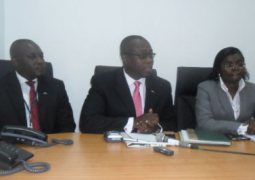As the world continues to reel from the global financial crisis, there is need in this country for experts and non-experts alike to review what is happening.
As we have stated on these pages not long ago, no matter what happens, we can never insulate ourselves from the crisis that is now rocking the world.
At the local level, we again insist that there is need to revamp and revitalise our economy.
Businesspeople across the country agree that the economy is biting harder and harder. Things are so bad now, they say, that many businesses are folding up.
In our view, we should take a cue from what others are doing.
Indeed, if others elsewhere can fall back on a bailout of businesses using public funds, we think that the Gambian authorities should consider doing something similar to make doing business more attractive to businesspeople.
In the light of this and a host of other facts, especially the fact that we have a crop failure during last year’s farming season, we suggest that government moves quickly to prioritise public spending, and to adopt austerity measures.
For instance, the government may want to start with taking a hard look at the public service, which has grown massively over the past 15 years, with the creation of all sorts of institutions, including new ministries, public enterprises and the proliferation of new embassies opened all over the world.
There is no doubt that paying for and maintaining this over-bloated public sector has turned the government into a very hungry, in fact voracious, revenue collector, to the detriment of the economy, since this tendency creates an environment which dampens investment and growth.
This is the plain truth!
The point has been made at a public forum held recently that because honest open debate and discussion is not encouraged, nor tolerated in this country, the government is going to introduce the VAT, come 2013; yet there was, and there is still, no public debate heard on this issue.
However, whatever the pros and cons, we feel it is time for the government to consider how to reduce personal income and corporate tax, as well as customs duties and other taxes so as to encourage investors in the country.
We think that if this is done, the Gambian economy will become more competitive vis-à-vis her neighbours.
For example, the Gambia Ports Authority (GPA) tariffs should be reduced to stay competitive with what obtains in the sub region, and in order to make The Gambia the desired business hub and gateway to the sub region.
The fact that government has already encouraged the influx of banks to operate in the country is an indication of its readiness to make the economy work for the benefit of everybody.
But the banks themselves would find it difficult to operate profitably in an economy where businesses are folding or going under all the time, and where businesspeople have to grapple with high and multiple taxation.
In any case, you ask anyone in the know, and he/she will tell you that business in general is dull; and employment is down.
Businesspeople are merely putting a bold face on it; however, underneath the cheerfulness is pain and anxiety over what would happen next, or how to break even.
We need other economic operators to come and play their part in the economic development of this country. That can only happen when government participates by reducing these taxes that are slowing down or maiming business growth and development.
We want
Despite the global financial crisis, we must plan ways and means that will help us cope with the situation.
We therefore suggest that government should organize a forum with businesspeople, and other stakeholders such as bankers, so as to develop plans and strategies to address this problem.
It is our view that the sooner we act the better for the nation.
“There no art which one government sooner learns of another than that of draining money from the pockets of the people”.
Adam Smith
Read Other Articles In Article (Archive)
How Much Do You Like Your High Heels
Sep 11, 2009, 8:30 AM
The Ding Ding Bantaba Launch Youth Program
Mar 6, 2009, 4:06 AM



